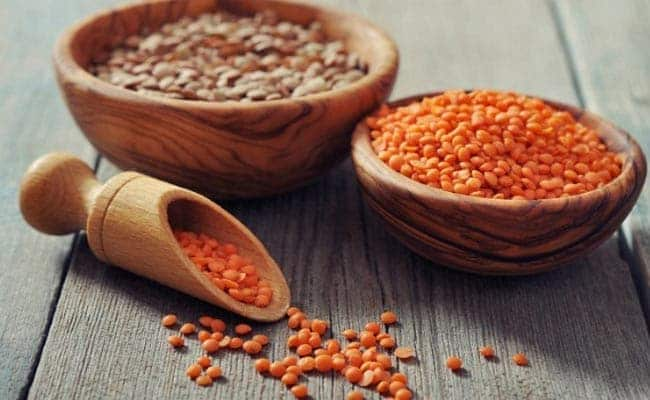
- Eating pulses is a healthy way to consume protein
- Eating pulses can also contribute to an increase haemoglobin levels
- Pulses are also a good source of fibre-rich carbs
Did you know that pulses are one of the most water-efficient sources of protein? Protein is a key nutrient for those who want to lose weight and build muscle mass. It is a macronutrient which is in fact, the building block of bones, skin, muscles and cartilage. There are numerous sources of protein available in the market today, but the ones which are most water efficient, cost effective and easily available, are pulses. Celebrity nutritionist Rujuta Diwekar took to Instagram to share about the wide variety of pulses in India, and how including them in diet can be beneficial for your health, the environment and even the farmers!
Protein-rich pulses: Why you must eat them regularly
In her post, Rujuta informs that pulses are sown in soil which has the capability of holding moisture after harvesting rice. Pulses place no burden on labour or water or the farmer for their growth. And while they grow, they fix nitrogen and healthy bacteria back into the soil.
What's more is that pulses are versatile in nature. They can be eaten as dal or in the form of khichdi, or as dal rice, or be added to sabzis, or used for making kebabs, dals, papads, etc.
Rujuta goes on to inform that India is home to more than 65,000 varieties of pulses. Each one of these pulses are rich in nutrients that are essential for a healthy growth and overall well-being.

You should consume pulses at least 4 times a week to get protein and aid weight loss
Photo Credit: iStock
Also read: Know All About Kulith, The Super Pulse Of India: Health Benefits And More
Benefits of pulses
1. Including pulses in your diet is undoubtedly one of the most healthy ways of consuming fibre, micronutrients and proteins.
2. Consuming pulses at least four times in a week can help in reducing inflammation, bloating and headaches during PMS.
3. Eating pulses can also contribute to an increase haemoglobin levels in the body.
4. Apart from being a good source of protein, pulses (legumes) are also a good source of fibre-rich carbs.
5. Including pulses in your diet can provide you essential B vitamins like folate, niacin and thiamin. Potassium, phosphorus, magnesium and zinc are other minerals found in pulses.
Also read: Pulses Can Control High Blood Pressure: Here's How
Moong dal, Arhar dal, Chana dal, Navrangi dal, Kulith dal and Alsan dal are some of the healthiest varieties of pulses. Eat them with roti or with rice for a minimum of 4 days in a week to reap maximum benefits of them.
Avoiding giving into the concept of restrictive fad diets that advocate giving up on complete food groups for quick weight loss. While they may help you lose weight quickly, the weight lost can quickly be gained back once you resume regular eating habits.
Following restrictive diets can also lead to nutritional deficiencies which can increase risks of autoimmune diseases like diabetes, high blood pressure and even heart disease.
You should focus on having a balanced diet that includes all major food groups like carbs, fats, proteins, fibre and omega-3 fatty acids to name a few.
Also read: Peanuts For Weight Loss: Rujuta Diwekar Tells Why These Legumes Must Be Included In Your Diet
Disclaimer: This content including advice provides generic information only. It is in no way a substitute for qualified medical opinion. Always consult a specialist or your own doctor for more information. NDTV does not claim responsibility for this information.
Track Latest News Live on NDTV.com and get news updates from India and around the world

